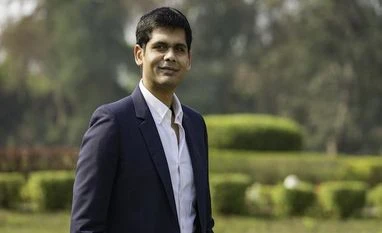Faced with surging imports in the home market, India’s largest stainless steel player, Jindal Stainless, is now looking at a bigger play overseas.
Exports currently account for about 20 per cent of total sales, but Abhyuday Jindal, managing director, Jindal Stainless, said, given the dumping that is happening, the company is working towards increasing its share of exports to 30-35 per cent.
Jindal Stainless has units at Jajpur in Odisha under Jindal Stainless Ltd and Hisar in Haryana under Jindal Stainless (Hisar). The companies are in the process of being merged and awaiting approval from the National Company Law Tribunal (NCLT).
The major competition for Jindal Stainless in the domestic market is from imports, particularly Indonesia and China. The suspension of countervailing duty (CVD) on stainless steel products from China and Indonesia in the Union Budget 2021-2022 led to an increase in imports.
In 2020-2021, imports from China had stood at 133,525 tonnes, while that in April-November 2021-2022 was at 213,512 tonnes; imports from Indonesia during the same time increased from 51,607 tonnes to 118,812 tonnes.
With imports eating into Jindal Stainless’ domestic market share, the company is planning to up its game in the export market.
“We see exports in the immediate future, going up. Imports in the US grew from Taiwan, Vietnam and India. Jindal Stainless also has been focused to increase sales in the US. Despite certain challenges, Jindal Stainless has made all preparation to achieve higher volumes in the US market in Q4 FY21-22,” said Jindal.
Europe currently accounts for the major chunk of Jindal Stainless’ export basket with Italy, Germany and France having a significant customer base. “We have a good demand and customer base in these countries. So we can increase our volumes there. But the US is going to be a key focus area,” said Jindal.
With carbon taxes looming large in these countries, Jindal Stainless is gearing up to reduce emissions even as it expands capacity.
“With our expansion, we would be requiring more energy definitely. But as a company we are looking at no more addition of thermal power. Any addition of power will be from internal gas balancing; we are also looking at solar and wind opportunities,” said Jindal.
He added that hydrogen energy was another concept that the company was working on.
Jindal Stainless is expanding capacity at Jajpur from 1.1 million tonnes (mt) to 2.1 mt. The cost of the ongoing brownfield expansion is pegged at Rs 2,150 crore and is one-third greenfield capex. Hisar, which caters to segments like auto, process industry, and oil and petrochemical, aerospace and electric vehicles, is also expanding capacity at a cost of around Rs 450 crore.
A major growth area for Jindal Stainless is the metro segment. Over the last four years – from FY19 to FY22 – the company registered a CAGR of about 20 per cent in sales volume in this segment.
Jindal believes that there could be a requirement of close to 1,400-1,600 metro cars over the next 4-5 years amounting to 14,000-16,000 tonnes of stainless steel. Moreover, international players like Hitachi Rail, Siemens, Alstom are in discussions for supply of stainless steel for their global projects, he added.
Unlock 30+ premium stories daily hand-picked by our editors, across devices on browser and app.
Pick your 5 favourite companies, get a daily email with all news updates on them.
Full access to our intuitive epaper - clip, save, share articles from any device; newspaper archives from 2006.
Preferential invites to Business Standard events.
Curated newsletters on markets, personal finance, policy & politics, start-ups, technology, and more.
)